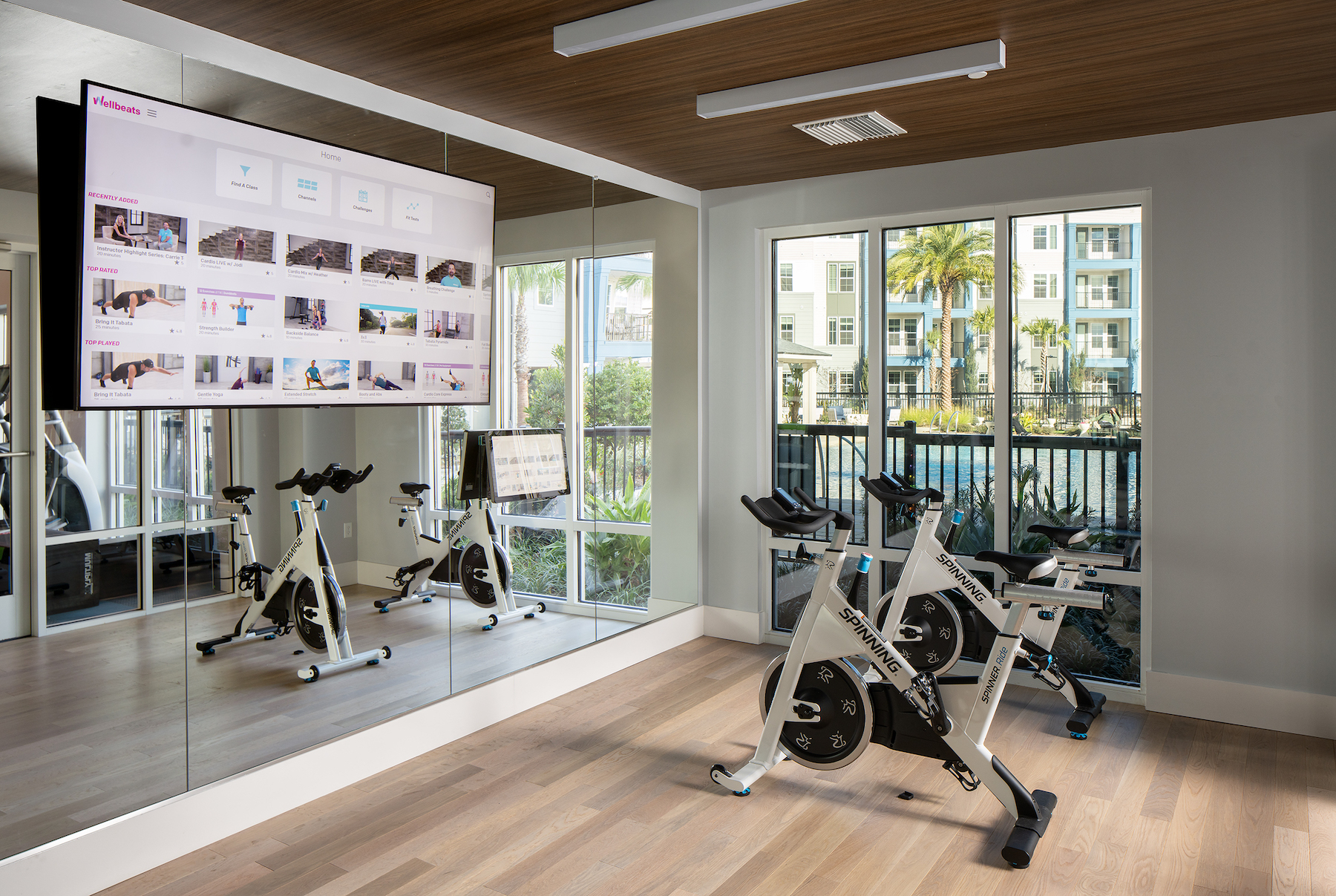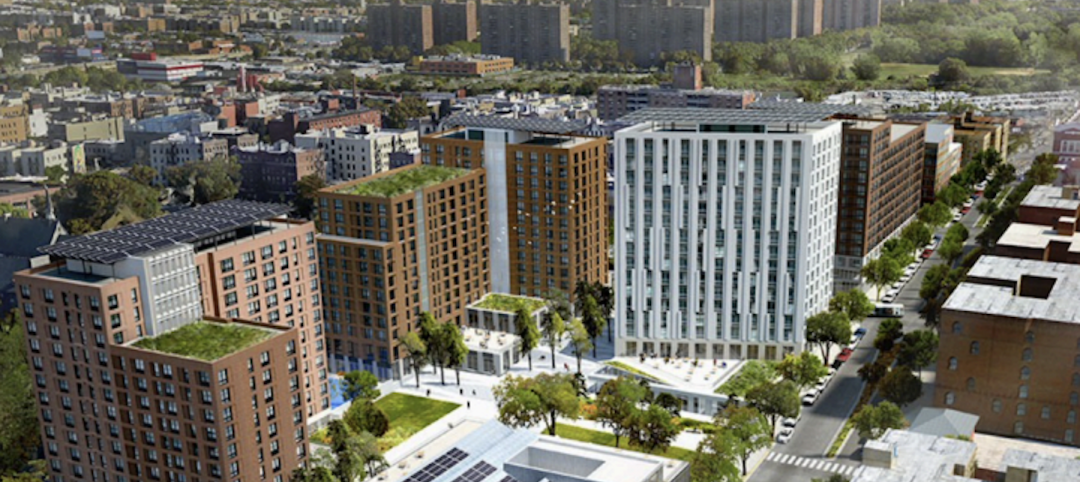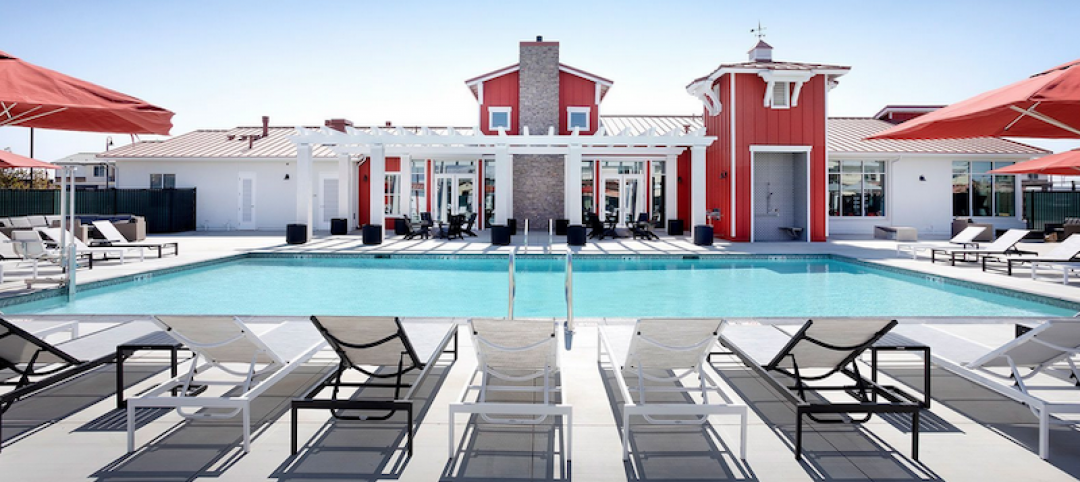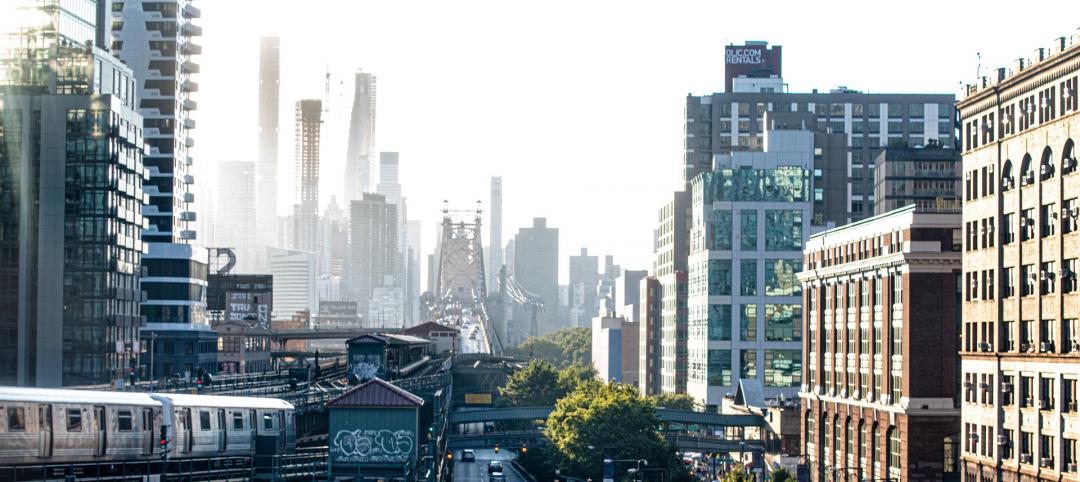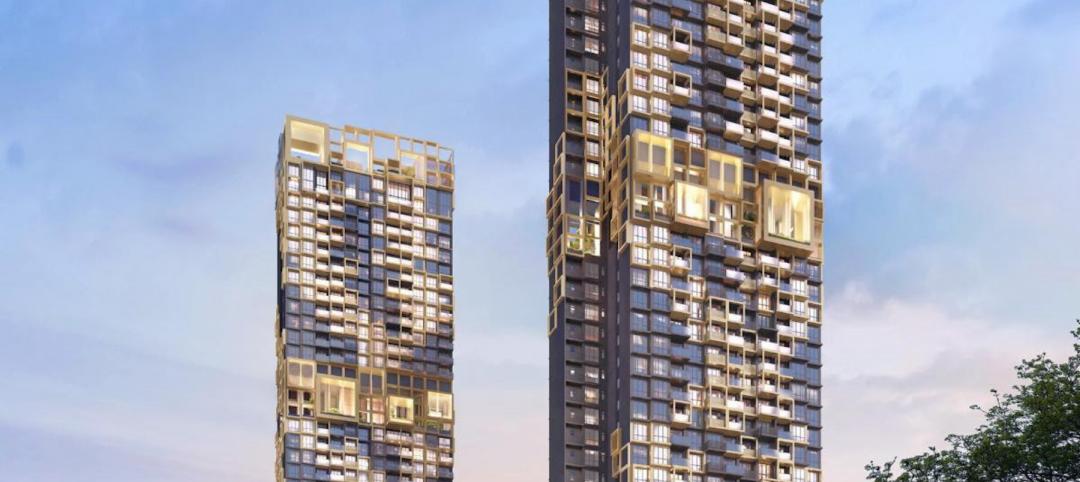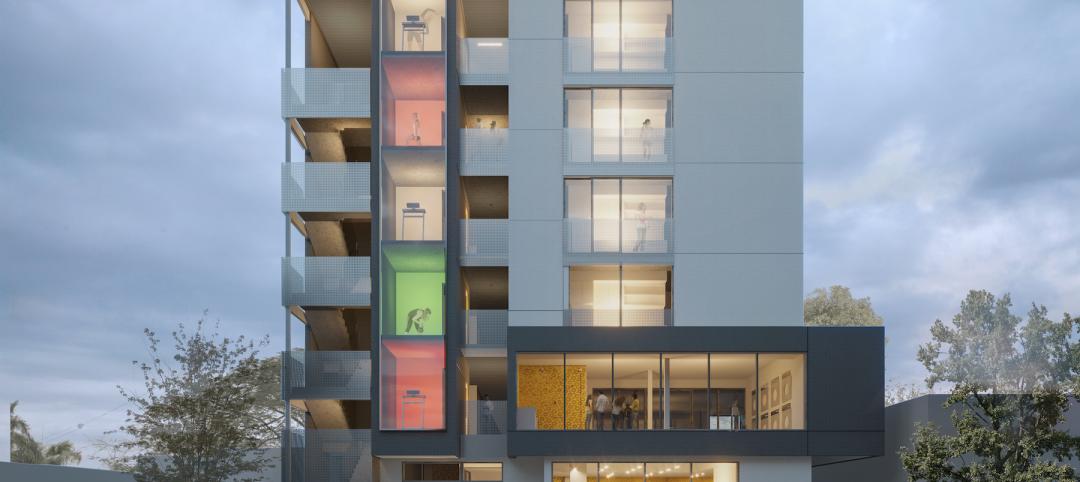When the Covid pandemic hit, in 2020, rental and condo communities across the country had to slam the doors on their fitness centers. Now that things are opening up, we wanted to see what’s new in fitness centers since we last visited this topic (Fitness Centers Go for Wellness, Fall 2018).
Who better to bring us up to date than Karl Smith, DHEd, EIM, Fitwel Ambassador, Director of Resident Experience at multifamily developer/owner Cortland? Following are valuable tips from “Dr. Fitness,” as he is called.
1. The big buzz in fitness: “gamification.” Smith said Peloton, the home exercise equipment manufacturer, turned fitness into a game, especially for Gen Z and Millennial residents. “They’re into the gamification of fitness,” he said. “They want to have fun when they’re working out, and they want to talk to their friends about it.”
Just before the company went public, in September 2019, Peloton stopped supplying multifamily properties with new equipment. Its acquisition of Precor in April 2021 created a new division that supplies rental and condo communities with a commercial version of Peloton equipment. Competitors include Echelon (exercise bicycles) and Aviron (rowing machines), said Smith.
Cortland is also installing “mirror” equipment in its gyms. “There’s a screen where you see yourself working out,” said Smith. Popular brands: Mirror, Tempo Studio, and Tonal.
2. The best spot for your fitness center. “The number one best place is to be as close to the leasing office as possible,” said Smith. “The fitness center is a marketing tool. When you take prospects on a tour, you want all your high-end amenities—the gym, the fire pit, the pool—as close to the leasing office as possible so they can see everything in a short period of time and make that commitment to sign the lease.”
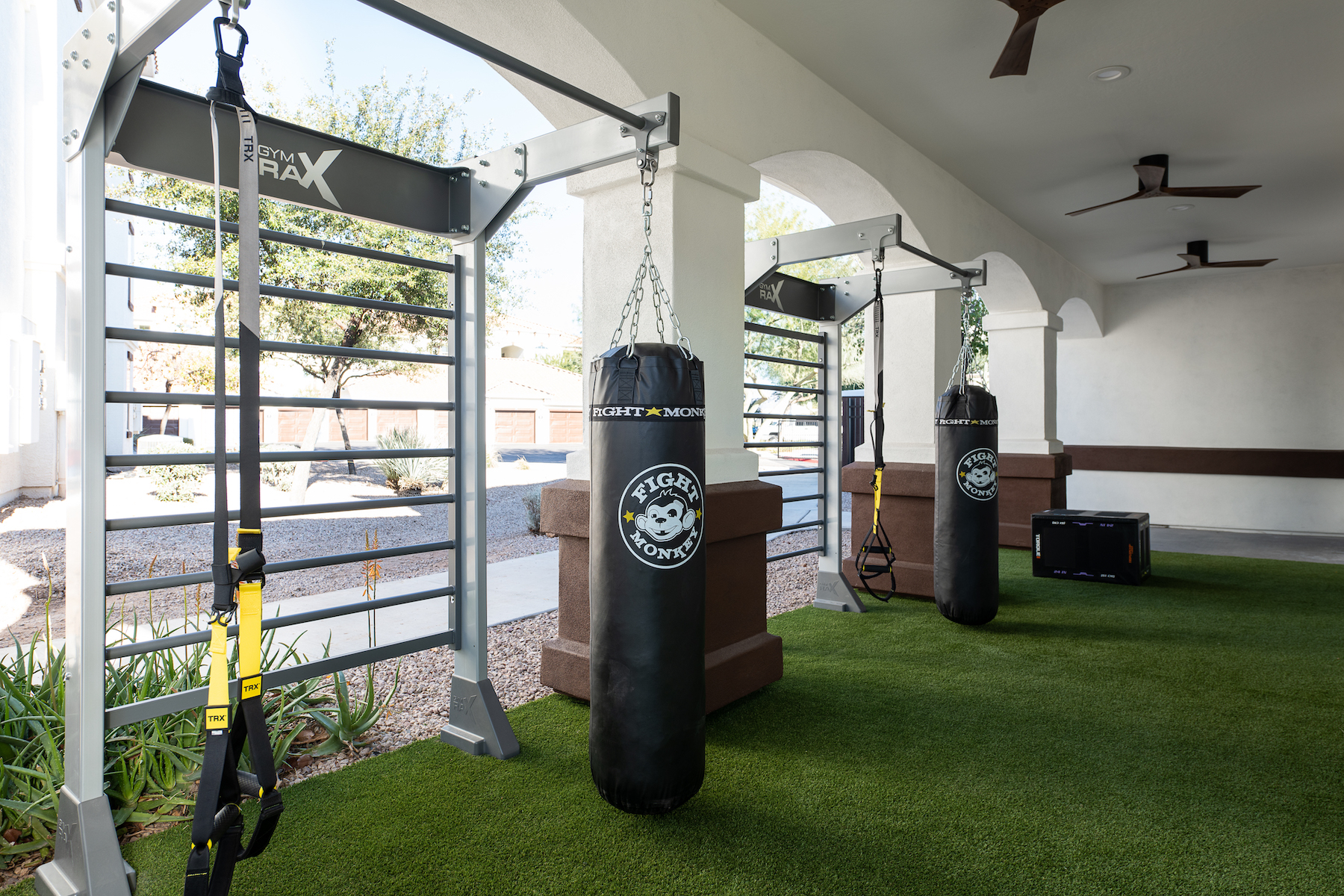
3. Safety first on equipment. Cortland uses “selectorized” fitness rigs—resistance machines that have limits on the amount of weight and range of motion the user can employ, so no spotter is needed. “That greatly reduces the odds of a resident getting injured from using our equipment,” said Smith. “Safety is built into everything we do in the gym.”
4. Dump the group classroom. “Chances are you’re going to have one class a day, so that’s 23 hours where it’s not occupied,” said Smith. “When we’re renovating a gym, the first thing we do is take that wall down and turf the floor.” That creates a more inviting space where tenants can work out on their own using accessories like medicine balls and dumbbells and fitness-on-demand programs like Wexer and Wellbeats.
5. Don’t try to meet everyone’s fitness needs. “We cater to a small percentage of our residents,” said Smith. “Seventy-five percent of our tenants say they want a fitness center, but only 10-25% will actually use it.” His research shows that one-fourth of Cortland tenants have a private gym membership; another quarter have no interest in fitness. “We market the service, but we do not expect everyone to use it,” said Smith.
6. Know your fitness target. “You have to identify who you’re building this fitness center for, and you have to have that person in mind every time you build one,” said Smith.
7. The sweet spot: novice exercisers. “They’re active, but they’re not going to be heavy lifters,” said Smith. “They’re going to ask questions about how to work out, which gives us an opportunity to teach about how to use the equipment properly.”
Smith said Cortland has at least one trained “wellness champion” staff member on site, as well as instructional signage showing how to use the equipment. Through a partnership with Valet Living, Cortland brings a trainer to the site two or three times a week for a couple of hours.
Dr. Fitness’s Magical Fitness Facility Space Allocation Formula
How big should your fitness center be? Smith has developed a reliable formula for determining minimum square footage for a typical Cortland rental project, based on the number of rental units:
Minimum square footage = # of units x 1.45 x 0.35 x 0.60 ÷ 5 x 50
For a 300-unit complex, that would be: 300 x 1.45 = 435 x 0.35 = 152.25 x 0.60 = 91.35 ÷ 5 = 18.27 x 50 = 913.5 s.f.
Try it against your own estimate or rule of thumb.
Related Stories
Sponsored | BD+C University Course | Apr 1, 2022
Video surveillance systems for multifamily housing projects
This introductory course provides detailed technical information and advice from security expert Michael Silva, CPP, on designing a video surveillance system for multifamily housing communities – apartments, condominiums, townhouses, or senior living communities. Technical advice on choosing the right type of cameras and optimizing the exterior lighting for their use is offered.
Modular Building | Mar 31, 2022
Rick Murdock’s dream multifamily housing factory
Modular housing leader Rick Murdock had a vision: Why not use robotic systems to automate the production of affordable modular housing? Now that vision is a reality.
Multifamily Housing | Mar 31, 2022
Mixed-use affordable housing project aims for zero waste
The Peninsula in the Bronx, N.Y., a mixed-use affordable housing campus, just opened its first phase.
Multifamily Housing | Mar 29, 2022
Ken McCarren to succeed Craig Jones as president of MBK Rental Living
Ken McCarren to succeed Craig Jones as president of MBK Rental Living
Multifamily Housing | Mar 29, 2022
Here’s why the U.S. needs more ‘TOD’ housing
Transit-oriented developments help address the housing affordability issue that many cities and suburbs are facing.
Multifamily Housing | Mar 28, 2022
Singapore’s new Irwell Hill residences will be built around heritage rain trees
The recently unveiled design of Irwell Hill, twin 36-story residence towers, calls for the development to be situated among copious greenery including preserved heritage rain trees.
Codes and Standards | Mar 23, 2022
High office vacancies have cities rethinking downtown zoning
As record-high office vacancies persist in U.S. urban areas, cities are rethinking zoning policy.
Multifamily Housing | Mar 23, 2022
Cadence McShane's Broadway Chapter Apartments earns 2022 TEXO Distinguished Building Award
Cadence McShane Construction Company received first place in the 2022 TEXO Distinguished Building Award in the General Contractor – Residential Multifamily 1 ($0 - $150M) category for the Broadway Chapter Apartments project.
Projects | Mar 22, 2022
Fast-growing Austin adds a $3 billion community
The nation’s fastest-growing large metro area is getting even bigger, with the addition of a $3 billion, 66-acre community.
Projects | Mar 22, 2022
Austin multifamily project to feature 60 micro-housing apartments
A new 34,364 sf multifamily project, Sixth and Chicon, in Austin, Texas, will feature 60 micro-housing apartments designed for “the urban minimalist.”


